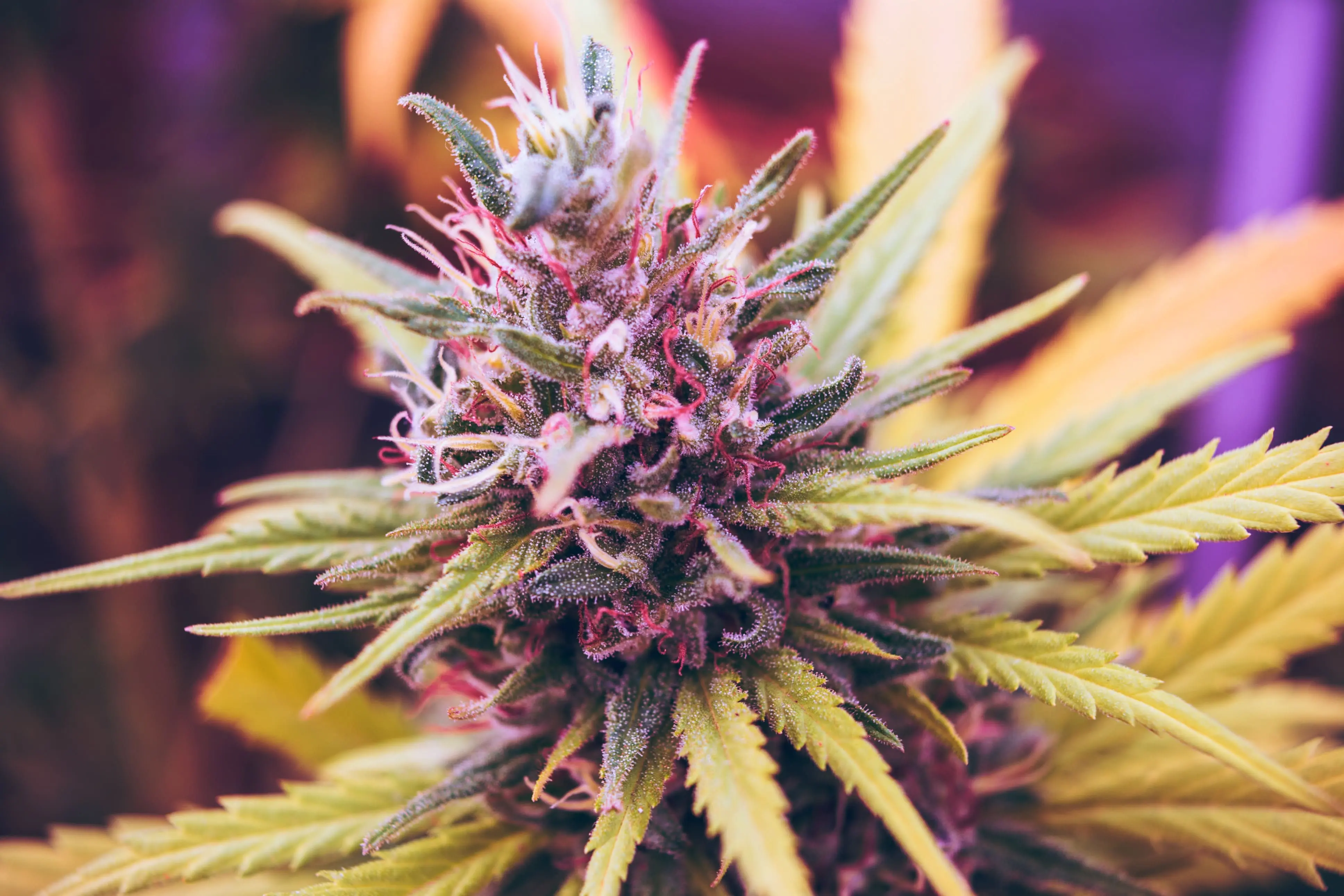Science & Health
Women Who Use Marijuana At A ‘High Intensity’ Report Greater Romantic Relationship Satisfaction, New Study Finds

Women who frequently use marijuana report greater satisfaction in their romantic relationships, according to a new study. But for men, the opposite appears to be true for reasons that aren’t immediately clear.
The study from researchers at Ariel University and Achva Academic College in Israel was published in the journal Drug and Alcohol Dependence this month.
Researchers recruited 110 couples who completed questionnaires on “cannabis use patterns, general satisfaction with relationship quality, satisfaction with the quality of sex, and perceived partner responsiveness,” the paper says.
They found that women who used marijuana at a “high intensity” experienced greater relationship satisfaction, perceiving both their own and their partner’s fulfillment higher compared to those who consumed cannabis less frequently or not at all.
“High-intensity cannabis use is linked to higher relationship satisfaction among women.”
Curiously, however, the study—funded in part by the Israeli Science Foundation, which receives support from the Israeli government—concluded that “men reported the opposite” experience.
The reasons that the intensity of marijuana use seems to impact romantic relationship satisfaction differently between genders warrants further research, the study authors said.
While numerous studies have examined the intersection of cannabis consumption and romantic or sexual behavior, this latest contribution is novel in part because it looked at possible dose-response effects.
“Results indicated that discrepancy in cannabis use intensity was significantly associated with lower general relationship satisfaction and lower satisfaction with the quality of sex,” the study says. “Additionally, dyadic analyses indicated that women who used cannabis at a high intensity tended to report an increase in relationship satisfaction and exhibit an increase in their own and, to some degree, their partner’s perceived partner responsiveness.”
“This study highlights the contribution of cannabis use intensity to romantic relationship quality.”
“In contrast, men who used cannabis at a high intensity reported lower satisfaction and exhibited lower perceived partner responsiveness, both their own as well as their partner’s, yet the latter did not reach statistical significance and should be further explored in future studies with a larger sample,” it said.
Researchers also said that the study results confirmed their hypothesis that discrepancies in marijuana usage rates between partners is “generally associated with poorer relationship quality.”
“The compatibility theory suggests that sharing leisure activities increases satisfaction and investment in the relationship,” they said. “Therefore, concordant substance use may facilitate shared activities and frequent interactions.”
For couples that don’t use cannabis together, or who use it at different intensity levels, that may lend to fewer shared experiences associated with relationship satisfaction, which “may impair their marital quality.”
“Women who used cannabis at high intensity reported greater relationship satisfaction and perceived both their own and their partner’s responsiveness as higher.”
With respect to the broader gender differences, the researchers said it’s possible that finding reflects the fact that men generally use marijuana more frequently than women, “which is associated with an increased risk of adverse consequences.”
“In contrast, women tend to use cannabis at a lower frequency and quantity, which is generally associated with fewer adverse consequences and a higher quality of life compared to heavy use,” the study says. “Therefore, it is possible that when men use cannabis, they experience more negative physical, mental, and interpersonal effects, which may be negatively associated with both their own and their partners’ perceived satisfaction with romantic relationships.”
“In contrast, women may experience more positive effects attributed to low-intensity cannabis use, which, in turn, may be positively associated with both their own and their partners’ perception of relationship quality,” it continues.
“Consequently, when women engage in high-intensity cannabis use, they deviate from conventional gender norms, acting in a manner considered less congruent with traditional feminine expectations. It has been proposed that embracing nontraditional gender roles, such as engaging in cannabis use, may yield positive outcomes as a result of staying true to oneself rather than meeting gender expectations. Women who defy traditional gender norms may consequently experience heightened autonomy and authenticity.”
While the study focused on romantic relationships, other recent search that marijuana can play a key role in heightening sexual satisfaction as well.
For example, a recent scientific review found that cannabis use is associated with improvements in symptoms of female orgasmic disorder.
Relatedly, another study published recently found that marijuana use is linked to increased sexual desire and arousal, as well as lower levels of sexual distress.
Late last year, a study found that cannabis-infused vaginal suppositories seemed to reduce sexual pain in women after treatment for gynecological cancer. Combining the suppositories with online exercises in “mindful compassion” offered patients even more substantial benefits.
“The outcomes favoured the [combined] group,” that research said “in which sexual function, levels of sexual arousal, lubrication, and orgasm increased, and the levels of sexual pain decreased.”
Earlier research also found that administration of a broad-spectrum, high-CBD vaginal suppository was associated with “significantly reduced frequency and severity of menstrual-related symptoms” as well as the symptoms’ negative impacts on daily life.
As for sexual fulfillment, a separate study last year found that while alcohol might be effective to “facilitate” sex, marijuana is better at enhancing sexual sensitivity and satisfaction.
While alcohol increased some elements of sexual attraction—including making people feel more attractive, more extroverted and more desirous—people who used marijuana “have more sensitivity and they are more sexually satisfied than when they consume alcohol,” authors wrote.
A broad scientific review of academic research on cannabis and human sexuality published last year concluded that while the relationship between marijuana and sex is a complicated one, use of cannabis is generally associated with more frequent sexual activity as well as increased sexual desire and enjoyment.
That article, published in the journal Psychopharmacology, also suggested that lower doses of marijuana may actually be best suited for sexual satisfaction, while higher doses could in fact lead to decreases in desire and performance. And it suggested effects may differ between men and women



